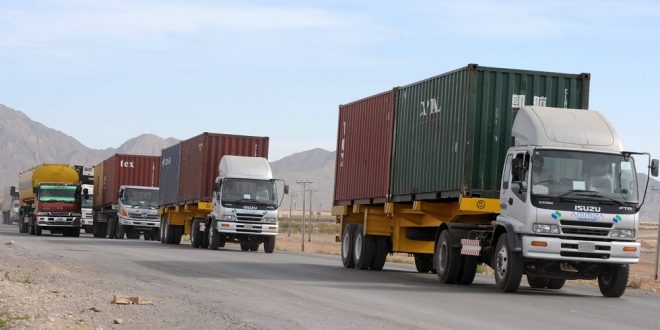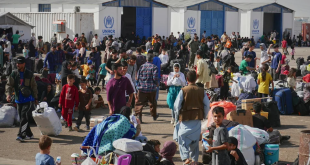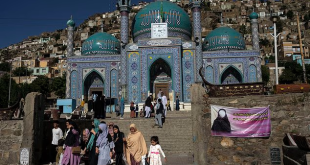KABUL — Pakistani authorities have unilaterally closed the Ghulam Khan border crossing in southeastern Afghanistan’s Khost province, halting all movement and dealing a fresh blow to already fragile Afghanistan-Pakistan trade relations, Afghan officials confirmed Sunday.
The shutdown was imposed without prior notice or an official explanation. Abidullah Farooqi, spokesperson for Afghanistan’s Directorate of Border Police, said that Pakistani authorities closed the port early Sunday and instructed drivers who had already arrived at the crossing to divert to other border checkpoints. Farooqi emphasized that Afghan officials are in contact with their Pakistani counterparts and are seeking to resolve the matter through diplomatic dialogue.
The Ghulam Khan crossing is one of the three primary land routes for trade and transit between Afghanistan and Pakistan, alongside the Torkham crossing in Nangarhar province and the Chaman crossing in Kandahar. Its closure is expected to severely disrupt the flow of goods, particularly to and from southeastern Afghanistan, and has already sparked concern among local business owners, truckers, and traders who depend on the route for commercial activity.
“This is a vital commercial lifeline for the region,” said one local trader in Khost. “Every closure like this pushes our businesses to the brink. We can’t afford such unpredictability.”
Intermittent closures of key border points have become increasingly common in recent years, often stemming from political tensions, security-related incidents, or disputes over cross-border regulations and documentation. The affected areas frequently bear the economic brunt of such decisions, with perishable goods rotting in transit and supply chains severely impacted.
In March 2025, the Torkham border was closed for several days following skirmishes between border security forces. In 2023, Islamabad temporarily shut several border crossings, citing militant attacks allegedly planned from Afghan territory—allegations Kabul has consistently denied.
Analysts say these closures are emblematic of deeper distrust between the two neighbors, particularly following the Taliban’s return to power in 2021. While both countries have repeatedly pledged cooperation on border security and trade facilitation, ground realities have often undermined these commitments.
For now, Afghan authorities have provided no indication of when the Ghulam Khan crossing may reopen. Talks with Pakistani officials are ongoing, according to Farooqi, who expressed hope that a resolution would be reached “as soon as possible to avoid further disruption.”
The closure adds yet another layer of strain to the already tense Afghanistan-Pakistan relationship, with Afghan traders, civilians, and government officials urging a swift reopening of the strategic crossing to ease economic pressure and restore normalcy to border communities.
Ask ChatGPT
 Afghanistan Times
Afghanistan Times




